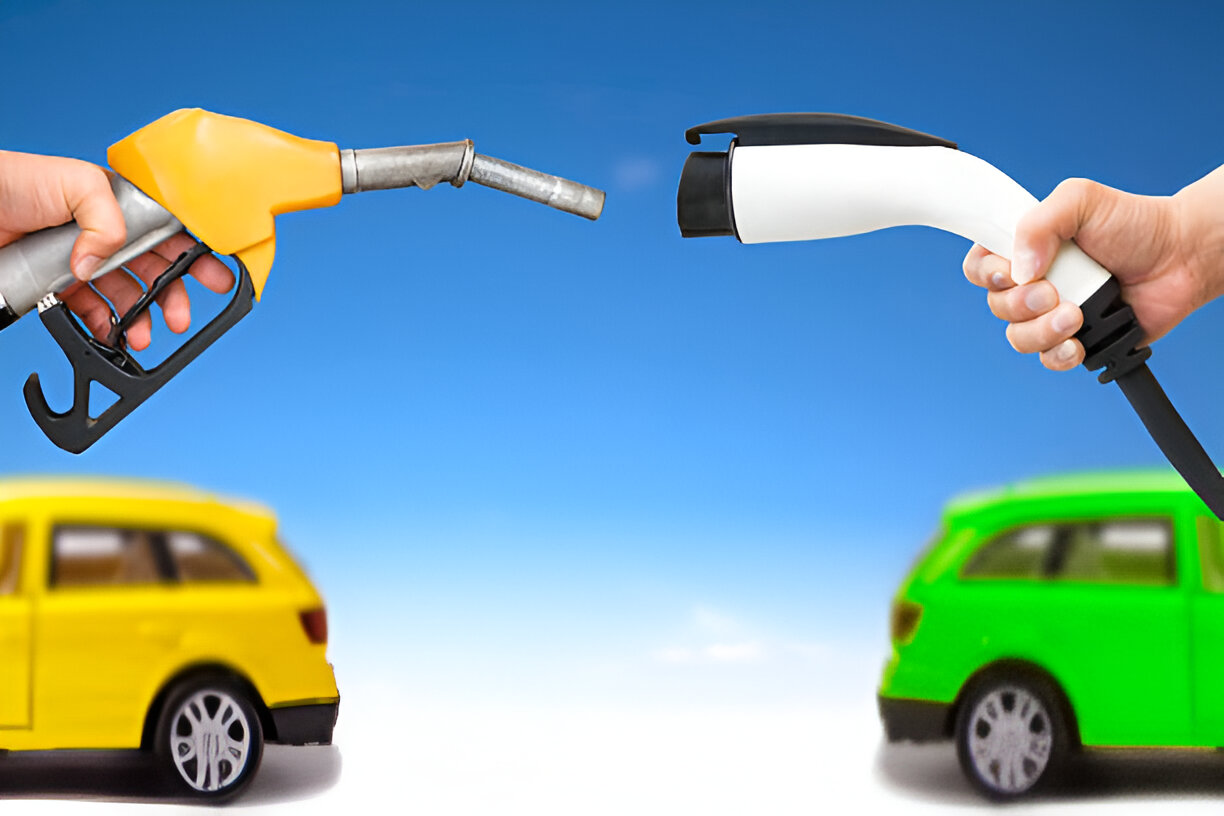

“Electric Vehicles vs. Hybrid Cars: Which is the Better Choice for Your Lifestyle?
In recent years, the automotive world has undergone a major shift with the rise of eco-friendly cars. Electric vehicles (EVs) and hybrid cars have become increasingly popular as more drivers seek ways to reduce their carbon footprint and save on fuel. But when it comes to choosing between the two, which is the better option for your lifestyle? In this blog, we’ll explore the differences between EVs and hybrids to help you make an informed decision based on your needs.
What is an Electric Vehicle (EV)?
An electric vehicle runs entirely on electricity. Powered by a large battery, EVs need to be charged from an electrical outlet — either at home or at public charging stations. With zero tailpipe emissions, EVs are the epitome of eco-friendly driving. There are no gasoline engines or exhaust systems, which means fewer moving parts and less maintenance.
What is a Hybrid Car?
A hybrid car combines a gasoline engine with an electric motor, using both power sources to optimize fuel efficiency. Some hybrid vehicles can run on electric power alone for short distances, while others rely more heavily on the gasoline engine. The electric motor helps reduce fuel consumption, but when the battery depletes, the gasoline engine kicks in. Unlike EVs, hybrid cars don’t need to be plugged in because the battery is recharged through regenerative braking and the gasoline engine.
Key Differences Between EVs and Hybrid Cars
- Range and Charging/Fueling
- EVs: Modern electric vehicles typically offer a range of 150-370 miles per charge, depending on the model. While this is sufficient for many drivers, range anxiety can still be a concern on long road trips. Charging an EV can take anywhere from 30 minutes (with ultra-fast chargers) to several hours (on standard chargers).
- Hybrids: Hybrid cars have a much longer range due to their gasoline engine. On average, a hybrid can travel 400-600 miles on a full tank and a charged battery. The best part? You never need to worry about charging a hybrid — simply fill up with gas, and you’re good to go. For city driving, hybrids often rely on the electric motor, saving you fuel.
- Environmental Impact
EVs: One of the greatest advantages of electric vehicles is that they produce zero tailpipe emissions. This makes them one of the cleanest options for reducing air pollution and combating climate change. However, it’s important to consider the carbon footprint associated with manufacturing the vehicle, especially the battery. As renewable energy sources grow, the overall environmental impact of EVs will continue to decrease.
- Hybrids: While hybrid cars still rely on gasoline and produce emissions, they are much more fuel-efficient than traditional gas-powered vehicles. Hybrids can significantly reduce carbon footprints by using less fuel, but they are not completely emission-free like EVs. However, for drivers who aren’t ready to go fully electric, hybrids offer a solid bridge toward greener driving.
- Cost Considerations
- EVs: The upfront cost of an electric vehicle can be higher compared to traditional gas-powered cars, especially with luxury models. However, the total cost of ownership tends to be lower because of lower fuel costs (charging an EV is cheaper than fueling a car with gasoline) and minimal maintenance (no oil changes, fewer moving parts). Additionally, many governments offer incentives and rebates to make EVs more affordable.
Hybrids: Hybrid cars are generally less expensive than electric vehicles but more expensive than traditional gasoline cars. The price can vary based on the model and features. While hybrids can save money on fuel, you still need to pay for gasoline, which adds to the ongoing cost. However, hybrid owners don’t need to worry about installing charging stations at home, which can add extra costs for EV owners.
- Maintenance
- EVs: Electric vehicles have fewer moving parts than traditional vehicles or hybrids. With no internal combustion engine, exhaust system, or oil changes, EVs generally require less maintenance. The most significant maintenance cost is related to the battery, but modern batteries are designed to last for many years, often covered under warranty.
- Hybrids: Since hybrids have both an electric motor and a gasoline engine, they require maintenance for both systems. While they don’t require oil changes for the electric motor, the gasoline engine still needs regular maintenance. Hybrids also have complex systems, which may mean slightly higher maintenance costs compared to a traditional car, but still lower than conventional gasoline vehicles.
- Driving Experience
EVs: Electric vehicles are known for offering a quiet, smooth, and powerful driving experience. The electric motor provides instant torque, meaning acceleration is often quicker than traditional cars. EVs are perfect for city driving and short commutes, with a more relaxed and enjoyable ride.
- Hybrids: Hybrid vehicles provide a balance between electric and gasoline power. In electric-only mode, they are smooth and quiet. When the gasoline engine kicks in, the driving experience feels more traditional. While hybrid driving isn’t as instant or smooth as an EV’s, it still offers a comfortable and efficient experience for daily driving.
Which One is Right for You?
Choosing between an EV and a hybrid depends on your unique driving habits and priorities. Here’s a quick breakdown:
- Go for an EV if:
- You want to completely eliminate fossil fuels from your driving experience.
- You mostly drive short distances (commuting, city driving, etc.) and have access to charging stations.
- You want a low-maintenance vehicle with minimal ongoing costs.
- You’re ready to embrace sustainable driving and reduce your carbon footprint to the max.
- Go for a Hybrid if:
- You want the flexibility of both gasoline and electric power for longer trips You’re not ready to rely solely on charging infrastructure and prefer the convenience of never having to plug in.
- You want to improve fuel efficiency without fully committing to an EV.
- You drive in areas where charging stations may be limited and need the reassurance of a traditional fuel source.
Conclusion
Both electric vehicles and hybrid cars offer impressive benefits for eco-conscious drivers. If you’re ready to go all-in on sustainability and don’t mind planning your charging needs, an EV is the best choice. On the other hand, if you’re looking for something more versatile, with the option of using gasoline when needed, a hybrid might be the perfect fit for your lifestyle.
In either case, you’ll be making a more eco-friendly and cost-effective choice compared to traditional gasoline vehicles. The future of driving is greener than ever, and whether you choose an EV or hybrid, you’ll be contributing to a cleaner, more sustainable planet.
This blog compares the features of EVs and hybrid cars in a way that is easy to understand, helping readers make an informed decision based on their own driving habits and preferences.
Add a comment Cancel reply
Categories
- Car News (10)
- Car Reviews (7)
- Educational Tips (7)
- Electric Cars (9)
- EV Battery (1)
- EV Charging (8)
- EV Testing (3)
- Uncategorized (28)
Recent Posts
Related posts


EV Myths vs Facts What You Really Need to Know

The Green Revolution How EVs Are Leading the Way









